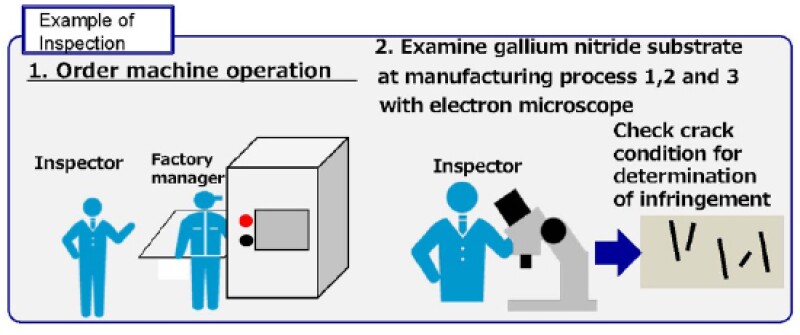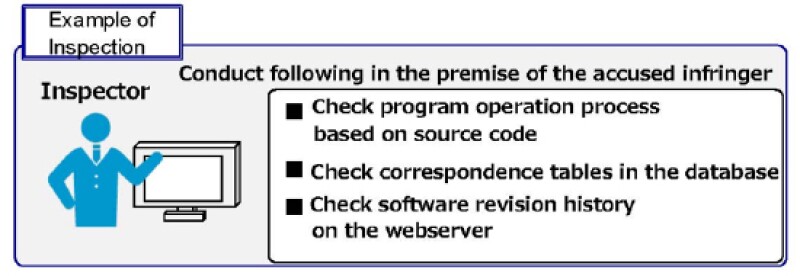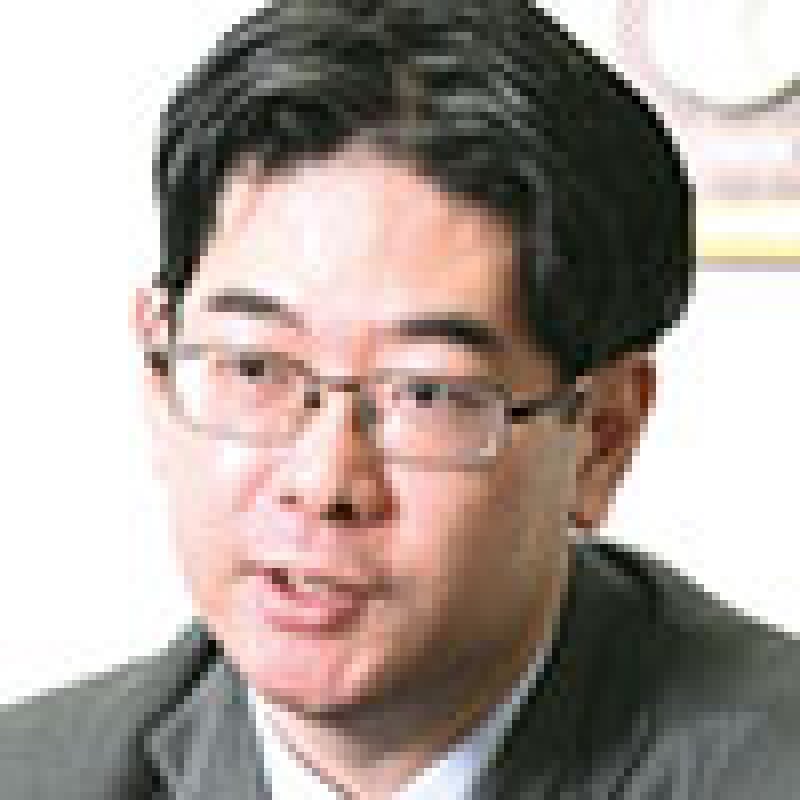

JPO, review of the IP dispute resolution system (December 11 2018)
Introduction of inspection system was suspended
An amendment of the law has been discussed as evidence collection methods in patent infringement lawsuits do not function sufficiently under the current legal system. The US discovery system was not referenced as it is too extreme and expensive and may not match the Japanese system. European evidence collection procedure may match and the German inspection system could be a good reference. In the German inspection system, an inspector, who is a technical expert having a confidentiality obligation and appointed by the court, enters the factory of the accused infringer, inspects evidence possessed by the accused infringer, and submits the report to the court. However, introduction of this system was suspended due to strong concern about trade secret leakage from the industry. For example, the concern that there would be a serious problem if someone enters a factory based on alleged evidence collection and urges the factory to disclose a manufacturing method or tries to steal know-how was expressed.
Introduction of inspection system
The discussion resumed and inspection was introduced in the Patent Act in the 2019 amendment (amended Patent Act, Article 105-2). When there is a possibility of patent infringement, a neutral technical expert (inspector) enters the factory of the accused infringer, conducts the necessary investigation regarding infringement proof, and submits a report to the court. Inspection is allowed only after filing a lawsuit.
Inspection will be granted when there is i) a necessity to prove infringement; ii) a probability of infringement; iii) no other means of adequate evidence collection; and iv) to avoid an excessive burden on the alleged infringer. Parties can file an immediate appeal against the inspection order. The inspector will enter the opponent's factory, conduct an inquiry, ask for submission of documents, and conduct machine operation, measurements, experiments, and other conduct permitted by the court. No entry to third parties' factories will be made. The opponent has an obligation to cooperate to collect materials. If the opponent refuses the requests of the inspector, which is permitted by the court, the court has discretion to find the petitioner's allegation to be true.
The inspector submits an inspection report to the court. A copy of the inspection report will be served to the inspected party. The inspected party can ask the court within two weeks after the service not to disclose all or part of the inspection report to the petitioner. The court can grant such a motion if legitimate reason exists. Parties can file an immediate appeal against the decision to dismiss motion not to disclose all or part of the inspection report to the petitioner and the decision not to disclose all or part of the inspection report to the petitioner.
Inspection will start to be used in practice within one and half years from May 17 2019. We should pay attention to how the court will run this new system.
Practical tips
The industry is opposed to the introduction of the inspection system and gave unusual criticisms, saying that sufficient consensus has not been reached among industry stakeholders, and that it was very regrettable that no members of the Japan Intellectual Property Association and the Japan Business Federation were allowed to participate in the Intellectual Property Committee Industrial Structure Council (hereinafter referred to as the committee). The industry also claimed that there were no legislative facts that urgently required amendments to the law, and using foreign systems would harm Japan's national interests etc. Ms Munakata, then JPO Commissioner, said that the intellectual property litigation system was an innovation infrastructure, and that it was an urgent task to make the Japanese system comparable to that of western countries, as well as China and Korea. The introduction of the inspection system is expected to enhance evidence collection procedures for method patents, large manufacturing devices (patents for products that are not available on the market), software patents, etc., for which it had been difficult to execute rights because of the difficulty in collecting evidence. Due to strong opposition from the industry, an inspection system before filing like the German inspection system was not introduced, and surprise inspection like in Germany was not introduced. The other party's opinion also has to be heard. According to Mr Shitara, former chief judge of the IP High Court, allowing immediate appeal at the issuance stage is very unusual in the international landscape, and it is legislation that takes into account of the defendant.
The committee report says that the inspection system is expected to be used as a sacred sword. With regard to the expression 'sacred sword', Judge Shitara believes that the inspection system should be the last trump card and should not be used often. The court's practice will probably be in-keeping with this, but on the other hand, if the requirements are too strict, the court would seldom use the system and then the rusty sword could not be drawn at all, and the system would become meaningless. Commissoiner Munakata stated that the inspection system is not a cannot-be-drawn sacred sword, but that the existence of an inspection system can be expected to encourage voluntary submission of evidence at an early stage. It was pointed out that it would be difficult for the courts to operate if the requirements for inspection system were tightened. However, as there was a strong voice from the industry concerning the leakage of trade secrets, and the introduction of an inspection system that forcedly enters the other party's premises was new in Japan, Commissoiner Munakata decided to introduce the system and pay close attention to the practice while tightening the requirements as a first step. Judge Shitara stated that it could be used for method patents, if there is a guarantee that after a certain degree of probability is proved, the defendant would eventually disclose or the inspection would provide relevant proof.
There was also a committee member's opinion that the plaintiff's attorney should get involved in conducting the inspection so that the plaintiff can see if the inspection report reflects the reality and to clear any suspicion that the inspector was looking at the evidence. However, from the viewpoint of protecting trade secrets, the plaintiff and his/her attorney were not allowed to be present.
The most problematic issue in designing the system and what the industry was most concerned about was the disclosure of the redacted part of the inspection report to the petitioner himself/herself. That is, when the judge decides whether legitimate reason to redact part of the inspection report exists, the judge can hear the petitioner's opinion. There is also a concern that if none of the inspection report is disclosed to the petitioner's side before being redacted, the petitioner will not be able to check whether information was collected properly. However, there was a great deal of concern about the disclosure of the inspection report before being redacted to the petitioner himself/herself, and it was clearly stated in the patent act that disclosure to the petitioner himself/herself requires the consent of the parties. Disclosure to the attorney does not require the consent of the parties. As the extent to which the inspection report is redacted can shape the direction of the trial, both parties shall have the right of immediate appeal. To restrict file inspection by the petitioner himself/herself of an inspection report that has been redacted but still contains confidential information, introducing an Attorneys' Eyes Only system was discussed. In Japanese civil lawsuits, plaintiff self-representation is allowed, so in order to introduce Attorneys' Eyes Only, it is essential to introduce an attorney mandatory system. In the future, considerations should be given to introducing an Attorneys' Eyes Only system by making use of an attorney mandatory system for patent litigation.

|
Takanori Abe |
ABE & Partners
Matsushita IMP Building
1-3-7, Shiromi, Chuo-ku, Osaka, 540-0001, Japan
Tel: +81 6 6949 1496
Fax: +81 6 6949 1487










